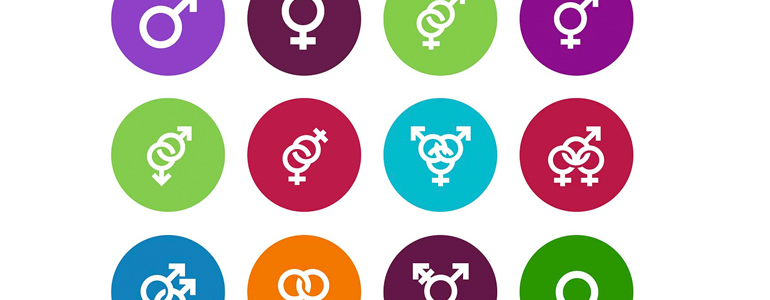Events
Conferences, talks & workshops for PGRs
- This event has passed.
BCMCR Gender and Sexuality Research Seminars
February 24, 2021 @ 4:00 pm - 5:30 pm

BCMCR Research Seminar – Gender and Sexuality: Work in Progress
1600-1730 Wednesday 24 February 2021
Online event: Please register on Eventbrite at this link; the online meeting link will be emailed out to those who sign up.
Gemma Commane and Hazel Collie (BCU) The RuPaul Project
Although RuPaul’s Drag Race brings an area of gay culture and history into the mainstream (i.e. RuPaul seasons and Werk the World Tour), our current work argues that the only Queen and Herstory that is promoted and unquestionably validated is RuPaul Herself. RuPaul as Ultimate Queen is achieved through strategically using the themes of history and authenticity to support a commodification of RuPaul which reinforces celebrity, cultural capital and authority. From Queens lip-syncing to RuPaul’s back catalogue to the central place RuPaul places herself as drag pioneer; explore ‘RuPaul as commodity’ and the possible implications on the presentation and marketability of gay / drag culture through the format of Drag Race and RuPaul as ultimate Queen. All queens assume the position behind her.
Mark McGlashan (BCU) MANTRaP: Misogyny and The Red Pill
I will introduce a research project that focuses on language use in the so-called manosphere. The manosphere can be described as a loose online network of websites and discussion forums dedicated to specific issues relating to men and masculinity, such as techniques for the seduction of women, male separatism, men’s rights activism, and ‘involuntary celibacy’. Consistent across many of these sites and forums is the legitimation of misogyny through discussion of ‘red pill philosophy’, which disavows feminism and gender equality. The Mantrap project examines language use within and between manosphere communities and considers how the popularisation and normalisation of misogynistic discourse especially online may have profound social effects on beliefs, values and social behaviours. The talk will introduce the collaborative work that I have been doing on this project with early-career and senior colleagues at Lancaster University, and will outline some of the initial findings as well as future directions.
Nona Wyld (BCU) Trans-Form
This presentation explores the complexities of what it is like to be a trans person conducting trans research at a time when trans identities are being so heavily debated in media and popular culture. Using ethnographical spoken word this provocation tries to convey the emotion and the labour of doing research as a marginalised person into marginalisation. As well as a discussion of how we can try to queer the research process by engaging in creative research practices. Current questions that are arising in the research are about who is listened to and seen as credible sources of knowledge, how trans are identities undermined and made to appear inauthentic or even oppressive and how we reclaim knowledge and engage in conversations that mean that we are not just heard but listened to.
John Mercer (BCU) How to Have Sex in a Pandemic
There is a growing public health debate around the impacts of isolation exacerbated by enforced social distancing and how to minimise the attendant social and physical harms. This will continue, even with the relaxing of lockdown measures. I am involved in a project with colleagues from Salford and UEA to engage with these issues by looking at an area vital to a society’s health and wellbeing – sexual and romantic life (WHO, 2006). This research project funded by the AHRC Covid Rapid Response fund focusses on the coping strategies of a specific group (MSM) under crisis conditions.
Hook up applications are a key area where sex and romance has been negotiated over the past two decades, a trend which has rapidly intensified as a result of the social distancing measures that have been put in place during the pandemic.
We need information about how MSM are coping in a crisis and where they might be particularly vulnerable; how well-equipped charity and voluntary sectors are viz their know-how to enable them to engage appropriately and the role played by hook up apps, both in terms of the health messages they deliver and the activity they enable. In this talk I will introduce the project and our plans
About the speakers:
Dr Gemma Commane is a Senior Lecturer in Media and Communications. Broadly the areas of her expertise span the fields of media and cultural studies and gender and sexuality. Dr Hazel Collie is a Senior Lecturer in Media and Communication in the School of Media at BCU. Her research covers television audiences, gendered identity, generational discourses and media histories.
Dr Mark McGlashan is Lecturer in English Language, Associate Director of Research, and Research Degrees Coordinator in BCU’s School of English. Mark’s research interests predominantly centre on the synthesis and application of methods from Corpus Linguistics and (Critical) Discourse Studies to study social issues relevant to a focus on language and discrimination such as nationalism, racism, sexism, and homophobia.
Nona Wyld is a PhD student within the School of Media. The working title of their PhD is ‘Interrogating transmisogyny in LGBTQ+ spaces: An ethnographic study collecting experiences and oral histories of transmisogyny affected people’.
John Mercer is Professor of Gender and Sexuality at BCU.